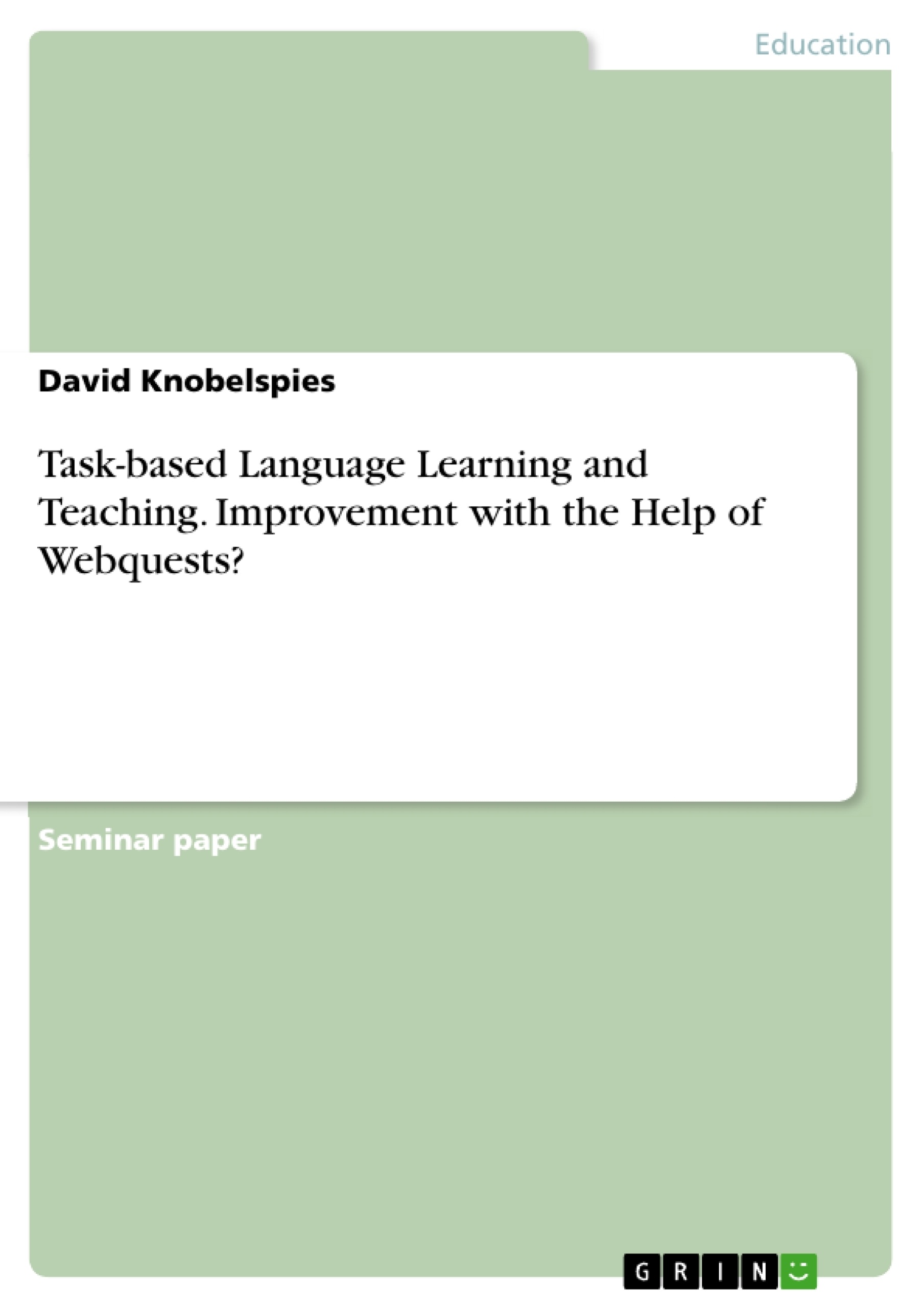This paper deals with the question, if Webquests do help to improve the Communicative Language Learning Process and Taskbased-Language-Learning in general?
Even though research confirms, language learning or rather task-based language learning is part of the communicative approach to language learning, there is still frequently believed in approaches that regard language learning as a linear process.
Within the scope of such linear processes in terms of language learning, several language items are meant to be put together. In contrast to this approach, task-based approaches recognize language learning as imponderable or rather hardly predictable.
Inhaltsverzeichnis (Table of Contents)
- Introduction
- Task-based Language Learning and Teaching
- Key Features
- Characteristics and Definition of Task
- The TBLL Framework - A Practical Approach
- The Webquest - A Way to support Communicative Language Learning
- Conclusion
- Bibliography
- Literature
- Internet
Zielsetzung und Themenschwerpunkte (Objectives and Key Themes)
This term paper examines the effectiveness of Webquests in enhancing communicative language learning and task-based language learning in general. It explores the key features and principles of task-based language learning and how Webquests can support these principles in practice.
- The benefits of task-based language learning (TBLL)
- The role of Webquests in supporting TBLL
- The impact of Webquests on communicative language learning
- The use of Webquests in promoting learner autonomy and engagement
- The effectiveness of Webquests in developing intercultural communicative competence
Zusammenfassung der Kapitel (Chapter Summaries)
- Introduction: This chapter introduces the concept of task-based language learning and its role in the communicative approach. It contrasts task-based methods with traditional linear approaches and highlights the advantages of task-based methods for promoting meaningful language learning, interaction, and communication.
- Task-based Language Learning and Teaching: This chapter delves deeper into the key features of task-based language learning, emphasizing the importance of authentic language use in meaningful tasks. It explores the characteristics of tasks, the TBLL framework, and provides examples of how tasks can be designed to promote interaction and communication in the target language.
- The Webquest - A Way to support Communicative Language Learning: This chapter focuses on Webquests as a tool for supporting communicative language learning within the framework of task-based language learning. It explores the potential benefits of Webquests in promoting learner engagement, autonomy, and intercultural communication.
Schlüsselwörter (Keywords)
This term paper focuses on key concepts like task-based language learning (TBLL), communicative language learning, Webquests, learner autonomy, intercultural communication, and authentic language use.
Frequently Asked Questions
What is Task-based Language Learning (TBLL)?
TBLL is an approach where language learning is centered around meaningful tasks rather than just studying grammar rules. It recognizes that language learning is often unpredictable and focuses on authentic communication.
How can Webquests improve language teaching?
Webquests support communicative language learning by promoting learner autonomy, engagement, and the development of intercultural communicative competence through inquiry-based tasks on the internet.
What are the key features of a "task" in TBLL?
A task in TBLL is characterized by a focus on meaning, a clear objective, and the use of authentic language to achieve a specific outcome through interaction.
Why is the communicative approach better than linear learning?
Unlike linear approaches that treat language as a set of items to be memorized, the communicative approach promotes real-life interaction and helps students use the language effectively in varied contexts.
What is the role of learner autonomy in Webquests?
Webquests encourage students to take control of their learning process, search for information independently, and collaborate with peers, which increases motivation and long-term retention.
- Quote paper
- David Knobelspies (Author), 2016, Task-based Language Learning and Teaching. Improvement with the Help of Webquests?, Munich, GRIN Verlag, https://www.grin.com/document/1163319



